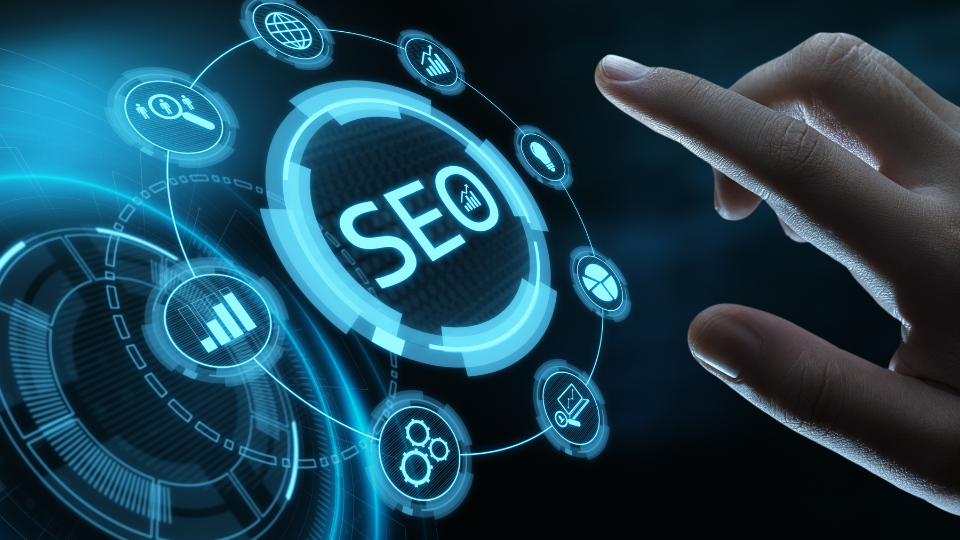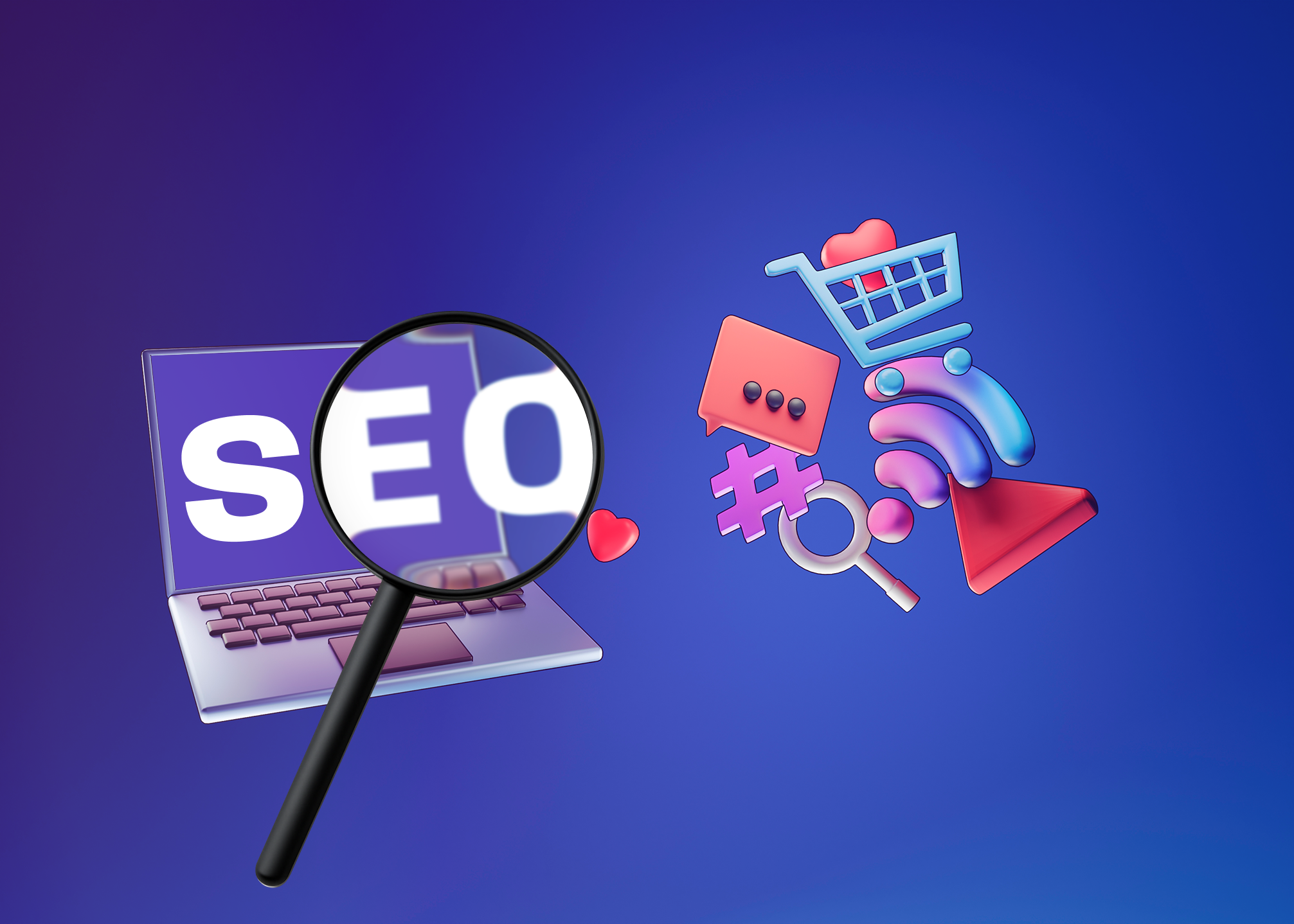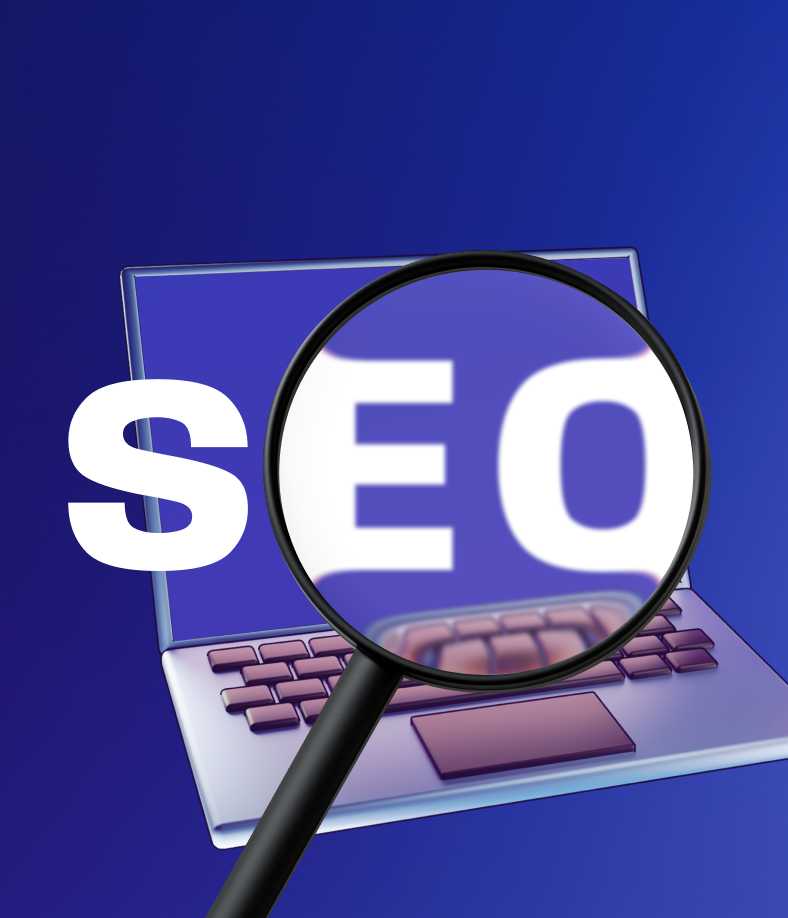Search has changed. Has your store kept up?
In 2025, getting your products found online isn’t just about keywords or backlinks. It’s about showing up in entirely new kinds of search results. Google’s Search Generative Experience (SGE), Bing Copilot, and tools like ChatGPT are reshaping how people discover, compare, and choose what to buy.
Here’s what that looks like in numbers:
- Only ~4.5% of SGE results link back to a traditional organic result on Page 1 (Search Engine Land, 2024).
- 53% of U.S. consumers plan to use generative AI to help with shopping this year (Marketwatch, 2025).
If your store isn’t optimized for this new search landscape – structured data, machine-readable trust signals, and content designed to be quoted by AI – you’re already falling behind.
But that doesn’t mean SEO is dead. Far from it.
It means eCommerce SEO is no longer optional, and it looks very different than it did just a year ago.
What Is eCommerce SEO (and How It's Changed)
At its core, eCommerce SEO is the practice of making your online store more visible in organic (unpaid) search results – whether on Google, Bing, or even within AI-powered shopping tools. It’s what gets your product pages to appear when someone searches for “best waterproof hiking boots” or “ceramic cookware for induction stoves.”
But in 2025, the rules have changed.
What eCommerce SEO used to be:
- Keyword research and placement
- Meta tags and basic on-page optimization
- Some link building, maybe a blog
What it is today:
- Structured product data that machines can understand
- Optimization for AI-driven search summaries (SGE, Bing Copilot, ChatGPT)
- Authority and trust signals that improve visibility in “zero-click” environments
- A unified strategy across technical SEO, content, UX, and even CRO
In other words, it’s no longer just about ranking. It’s about being selected by AI models and search engines as the most relevant and trustworthy answer. That means your store needs to be clear, fast, structured, and content-rich – all at once.
Why eCommerce SEO Still Matters (More Than Ever)
With all the noise around AI-generated content and declining organic clicks, it’s easy to assume that SEO is on its way out. But for eCommerce brands, it’s actually becoming more important, not less.
Here’s why.
- Organic Traffic Still Converts Best
Paid ads are great for speed. But SEO is what builds long-term discoverability.
Organic traffic often comes from higher-intent searches – people looking to compare products, understand options, or buy. And once you’ve earned those rankings, they keep driving traffic without continuously draining your budget.
- It Lowers Your CAC Over Time
While your competitors are locked into a cycle of rising ad costs, SEO helps you reduce customer acquisition cost (CAC) and build a sustainable acquisition engine.
Every new product or category page you optimize becomes a long-term asset, not a temporary campaign.
- It Supports Your Paid and Social Efforts
Think SEO and PPC are separate? Not anymore.
SEO data helps shape smarter ad targeting, and optimized landing pages improve paid performance. Meanwhile, a well-structured site also boosts trust signals that can improve your conversion rate from all channels; not just organic.
It’s the Only Way to Show Up in Generative Search
Most importantly, AI-powered search is built on structured, high-trust data.
If your product pages aren’t using schema markup, if your brand lacks authority-building content, or if your site is too slow or shallow, AI search assistants will skip right over you.
In many cases, the only eCommerce brands showing up in SGE snapshots are the ones with proper technical SEO, strong content, and domain-level authority.
eCommerce SEO in 2025 is not just about rankings. It’s about visibility, trust, and control over how your brand shows up on search engines, in AI assistants, and in the minds of your customers.

The Anatomy of High-Impact eCommerce SEO
Not all SEO is created equal, especially in eCommerce. To compete in 2025, your SEO strategy needs to go beyond checklists and plugins. It needs to work across technical, content, product, and AI-readiness layers, all tailored to how people actually shop.
Here’s what that looks like when done right:
- Technical SEO: The Foundation
If search engines (and AI models) can’t crawl and understand your site, nothing else matters.
We focus on:
- Clean site architecture with optimized crawl depth and internal linking
- Fast load speeds (especially on mobile and for Core Web Vitals)
- Proper indexing with canonical tags, redirect handling, and robots.txt management
- Eliminating duplicate content from filters, sorting, and pagination
The result? A healthy site that search engines trust and prioritize.
- Product Page Optimization: Where the Sale Happens
Your product pages aren’t just for customers; they’re for search engines too.
We help optimize:
- Title tags, meta descriptions, and H1s for both clarity and intent
- Structured data (schema markup) for price, availability, reviews, and more
- Image SEO, alt text, and lazy loading
- Internal links from collections, blogs, and related products
This ensures that your product pages not only rank but also show up in rich results and AI shopping summaries.
- Content Strategy: Build Relevance and Authority
Content isn’t just about blogging. In eCommerce, the right content educates, guides, and sells.
We create:
- Collection and category page copy that improves rankings and UX
- Buying guides, comparison pages, and FAQ content that targets high-intent searches
- Blog content that fills informational gaps and drives top-funnel visibility
- Assets designed for AI-powered shopping assistants and “zero-click” environments
Every piece supports both discoverability and conversion.
- Off-Site SEO & Authority Building
Links still matter, but they need to come from the right places.
We support:
- Ethical link building through digital PR, partnerships, and product mentions
- Building your brand presence across publisher sites, review platforms, and directories
- Earning trusted third-party citations that influence both rankings and generative AI responses
You don’t just want links. You want recognition as a top source in your category.
- Generative Engine Optimization (GEO)
New in 2025: optimizing for AI-generated results.
We help you:
- Structure your content so it’s machine-readable and quotable
- Add context that makes your brand the “answer” in AI shopping summaries
- Improve semantic clarity for natural language models (NLP)
- Prepare your brand for visibility in SGE, ChatGPT browsing, and Bing Copilot
This is the future of search, and most stores aren’t ready for it.
How We Do It (Without the Guesswork)
At this point, you might be thinking: “Sounds great, but who’s actually putting all this into practice?”
That’s where we come in.
We’re not just ticking boxes in an audit report. We build SEO strategies that drive traffic, boost product visibility, and lead to real revenue growth, because we know what actually moves the needle for eCommerce.
Here’s how we do it:
- Strategy-First, Platform-Specific
We specialize in SEO for Shopify Plus, Magento, and Adobe Commerce, and we tailor everything to the quirks of each platform. That includes URL logic, theme limitations, dynamic filtering, and how search engines treat native site structures.
- Built on Technical Expertise
Our team includes eCommerce devs, technical SEOs, and AI specialists. We handle things that most generalist agencies can’t, like optimizing crawl budgets for large catalogs or cleaning up JS-heavy sites that confuse search engines.
- Focused on What Actually Grows Revenue
No vanity metrics. Every fix, every piece of content, every schema update is done with one goal in mind: increasing your visibility at the point of purchase.
Some recent results:
- +46% organic traffic in 6 months for a DTC brand with 2,000+ SKUs
- 3x increase in non-branded keyword rankings for a niche electronics retailer
- Collection pages featured in SGE summaries ahead of competitors
- Data-Backed. No SEO Folklore.
We don’t rely on outdated playbooks or SEO myths. Every recommendation we make is grounded in what we’ve tested and what’s working in 2025.
And if something changes tomorrow? We’ll adjust. That’s the advantage of working with a team that’s plugged into the future of search.

Common Pitfalls We Help Clients Avoid
If you’ve been burned by SEO before, you’re not alone. We hear it all the time:
“We paid for months of SEO and saw no real results.”
“Our product pages look nice but barely rank.”
“We installed the plugin, shouldn’t that be enough?”
Most eCommerce SEO failures come down to a few avoidable mistakes. Here are the ones we see most often and help clients fix:
Over-Relying on Plugins and Themes
Popular SEO plugins and out-of-the-box themes promise “instant optimization,” but they rarely handle what really matters: site architecture, crawl logic, or nuanced product page schema.
What we do instead:
Custom configuration for your platform, tailored schema implementation, and manual oversight for what AI and bots actually see.
Ignoring the Real Impact of SGE and AI Search
Many brands still optimize as if Google’s 10 blue links are the goal. They’re not. In 2025, if your content isn’t structured for generative AI, it won’t appear in summaries, and you’ll miss out on high-intent buyers.
What we do instead:
We build content and markup that help your store show up in SGE snapshots, Bing Copilot results, and even ChatGPT browsing sessions.
Treating SEO as a One-Off Project
SEO isn’t a checklist. It’s an evolving strategy. We’ve seen stores implement one round of fixes, then go silent, only to lose ground six months later when Google or SGE changes again.
What we do instead:
Continuous monitoring, iterative improvements, and flexible strategies that evolve with search.
Focusing on Rankings Instead of Revenue
Getting to position #1 doesn’t mean much if it’s for a keyword that doesn’t convert. Traffic alone won’t pay the bills.
What we do instead:
We align keyword targeting with buying intent, optimize product/collection pages for conversions, and track impact where it matters – sales, not just sessions.
These aren’t just technical problems. They’re missed revenue opportunities, and we’re here to help you stop leaving money on the table.
What Should I Do Next?
If your eCommerce store depends on organic traffic – or you want it to – you can’t afford to treat SEO like an afterthought.
Whether you’re struggling with visibility, worried about generative search, or just unsure where to start, we’ll help you get clarity fast.
Here’s what you can do today:
Get a Free SEO Audit
We’ll review your site and highlight key opportunities—no fluff, no generic advice. Just real insights tailored to your store and platform.
Conclusion: SEO Isn’t Dead. It’s Just Different Now
Search hasn’t stopped evolving. Your store shouldn’t either.
Today’s eCommerce SEO is about more than keywords and rankings. It’s about visibility in AI-driven results, trust with both users and machines, and building an engine that brings in qualified buyers every day.
If you’re ready to grow, we’re ready to help.






